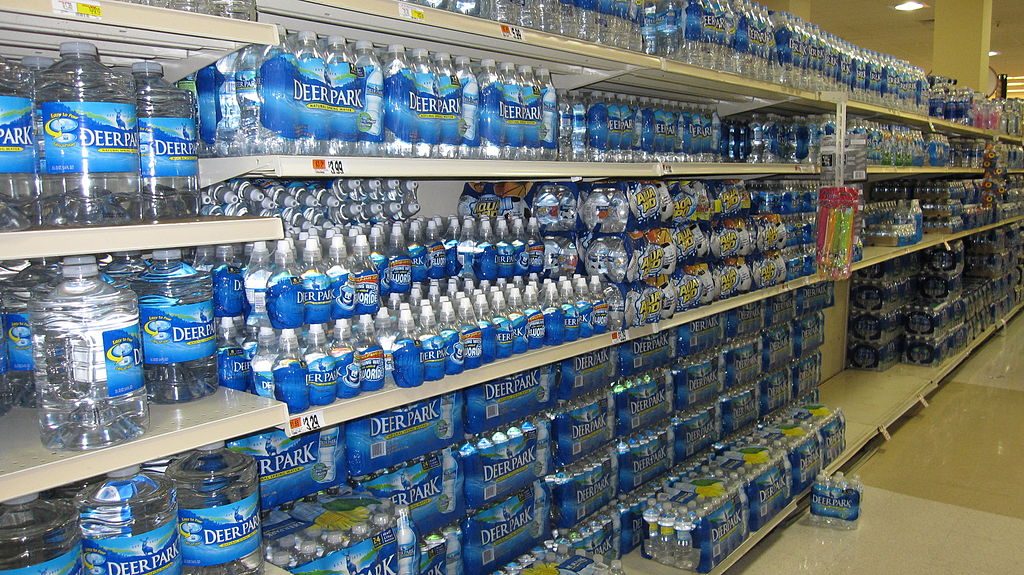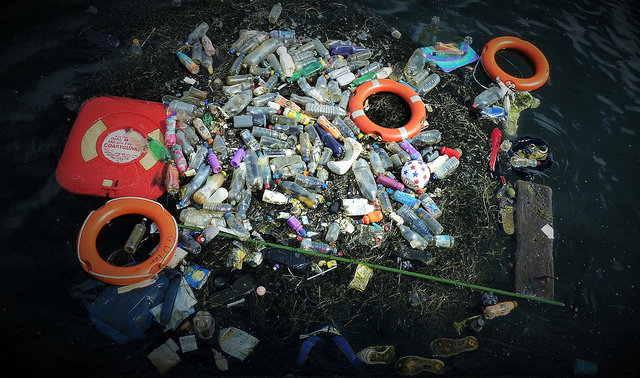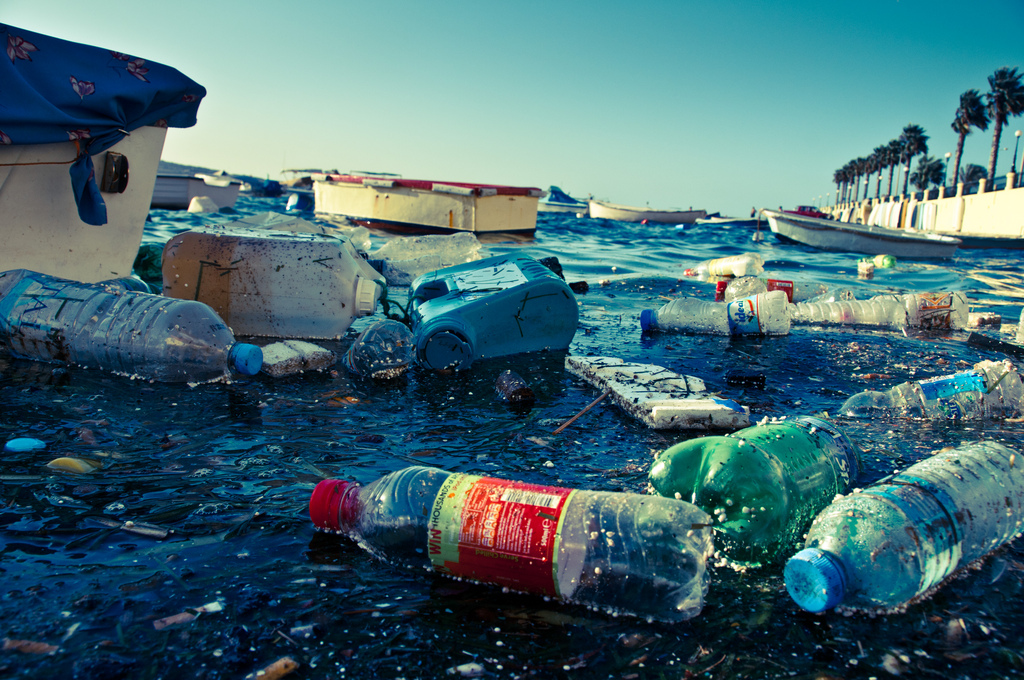An investigation has revealed that ten of the leading UK supermarkets are producing 810,000 tonnes of single-use plastic packaging and half do not have specific plans to reduce plastic.
The Checking Out on Plastic report by Greenpeace and the Environmental Investigation Agency (EIA), highlights that seven supermarkets produce 59 billion pieces of single-use plastic every year.
Ten supermarkets produce 1.2 billion single-use plastic bags, 958 million bags for life and 1.3 billion lightweight plastic produce bags.
The introduction of a 5p carrier bag charge has lead to an 86 per cent drop in single-use bags since 2014. However, the report found that the ten supermarkets still produce 1.2 billion single-use plastic bags, 958 million bags for life and 1.3 billion lightweight plastic produce bags.
Supermarkets surveyed in the report include Tesco, Sainsbury’s, Lidl, Aldi, Waitrose, Co-op, Asda, M&S, Morrison’s and Iceland.
The report ranked Iceland as top for its plastic policies, with Lidl and Sainsbury’s listed as the bottom two.
Call for ‘Coherent Plastic Reduction Plan’
 Credit: Wikimedia Commons
Credit: Wikimedia Commons
In response to the findings, Greenpeace and EIA are calling for a coherent transparent strategy to reduce the use of single-use plastics by supermarkets and consumers.
Key recommendations include supermarkets setting year-on-year targets to reduce the use of single-use plastics, swiftly eliminating the use of unnecessary and non-recyclable plastic packaging by the end of 2019, and publishing yearly audits of single-use plastic.
Currently, only four of the ten supermarkets surveyed publish an ‘annual plastic footprint’, although the report notes that major retailers have indicated they are willing to publish this information in the future.
Greenpeace UK oceans campaigner Elena Polisano said, “Much of the throwaway plastic packaging filling up our homes comes from supermarket shelves, but high street giants are still not taking full responsibility for it.
Supermarkets need to check out on throwaway plastic fast.
Greenpeace UK oceans campaigner Elena Polisano
“So far most retail bosses have responded to growing concern from customers with a pick-and-mix of different plastic announcements, but have failed to come up with the coherent plastic reduction plans required to solve this problem.”
She continued, “Supermarkets need to check out on throwaway plastic fast.”
Sarah Baulch, EIA senior ocean campaigner, said, “It is abundantly clear that we cannot simply recycle our way out of the plastic pollution crisis, and yet this remains the priority area of focus for many major chains.
Retailers must pioneer new ways to reduce their plastic footprint across the entire supply chain.
Sarah Baulch, EIA senior ocean campaigner
“Retailers must pioneer new ways to reduce their plastic footprint across the entire supply chain.”
Impact of Plastic on the Oceans
 Credit: Flickr Charos Pix
Credit: Flickr Charos Pix
The report found that supermarkets’ current focus is on recycling rather than reduction. However, this is not enough for environmental campaigners who note that 12 million tonnes of plastic end up in the oceans each year.
With plastic production expected to double in the next year 20 years, this could mean nearly 50 million tonnes of plastic leaking into the ocean by 2050.
Plastic in our oceans severely harms marine wildlife, as highlighted in BBC One’s Blue Planet. It also negatively impacts tourism, communities who rely on fishing, and agriculture. There are also increasing concerns about plastic entering the human food chain.
Rather than simply recycling plastic and shipping plastic to Southeast Asia, campaigners believe that halting the use of single-use plastic is required. They argue that it’s vital to address supermarkets’ use of plastics in everything from ultra-thin plastic bags for fruit and vegetables to yogurt pots and milk.
The Right to a Clean Environment
The UK has national laws protecting the environment and the has signed and ratified the International Covenant on Economic, Social and Cultural Rights. Article 12 of this treaty stipulates that states must ensure, “the right of everyone to the enjoyment of the highest attainable standard of physical and mental health.”
The International Covenant on Economic, Social and Cultural Rights is not incorporated into UK law, which means the courts are unable to enforce this right. The UK is still bound to comply with its terms under international law, and is held to account by the UN Committee on Economic, Social and Cultural Rights.
However, each state is only subject to review once in a five year cycle, and the review findings are not legally binding judgements. Instead, they are effectively a set of recommendations which states frequently ignore.
It’s also unclear how these protections relate to the UK’s plastic waste, much of which is shipped to Southeast Asia. Critics of this practice argue that the UK is exporting its plastic problem rather than finding a genuine solution.







